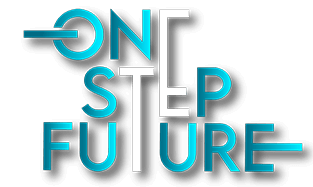Introduction: What is Market Research?
In today’s dynamic business environment, making informed decisions is essential for success. But how do you ensure that your decisions are rooted in reality and not just guesswork? This is where market research comes into play. It involves gathering and analyzing data about your target audience, industry, competitors, and overall market trends. By answering the question, “What is market research?” we unlock a key tool that empowers businesses to thrive in competitive landscapes.
Market research helps businesses of all sizes—from startups to established companies—understand consumer needs, monitor competition, and identify growth opportunities. Without it, you’re essentially flying blind in a world full of rapid changes and unpredictability.
Why Market Research Matters for Business Success
Why is market research important? Because it equips businesses with the insights they need to:
- Understand their customers better and create offerings that meet real needs.
- Identify new opportunities within the market that can be capitalized on.
- Stay ahead of competitors by knowing what they’re doing and how to differentiate.
- Make data-driven decisions that minimize risks and improve business outcomes.
For USA business owners and startups, market research is crucial for long-term success. In an economy where trends shift quickly, informed decision-making based on solid data is non-negotiable.
Types of Market Research
To harness the power of market research, it’s essential to understand its various types. Depending on your business objectives, you might use different types of market research methods.
Primary vs Secondary Research
- Primary Research: This involves gathering new data directly from your target audience through surveys, focus groups, and interviews. It provides first-hand insights tailored specifically to your business.
- Secondary Research: This involves analyzing existing data like industry reports, competitor analysis, and publicly available studies. It’s quicker and less expensive than primary research but might not be as specific to your needs.
Both types of research are essential for getting a complete understanding of your market.
Qualitative vs Quantitative Research
- Qualitative Research: This method is focused on understanding behaviors, attitudes, and motivations. For example, why do customers choose one product over another? Through interviews and focus groups, qualitative research helps businesses delve deep into consumer psychology.
- Quantitative Research: This method uses numerical data and statistical analysis to identify patterns. For example, how many people in your target audience prefer a particular product? Surveys and online polls are common tools for gathering quantitative data.
Both methods complement each other and can be used together to gain a comprehensive view of your market.
Key Benefits of Market Research
Understanding Customer Needs
Knowing your customers’ needs is essential to staying competitive. Market research allows businesses to gather detailed insights into what customers want, how they behave, and what problems they’re trying to solve. By using premium market research services, businesses can gain access to deeper insights that fuel innovation and improve customer satisfaction.
Identifying Market Opportunities
Market research helps uncover untapped opportunities that can be pivotal for business growth. Whether it’s identifying a gap in the market or recognizing an underserved audience, the insights gained can lead to profitable ventures. Startups, in particular, benefit from this knowledge by positioning themselves strategically to meet unmet needs.
Competitive Analysis
Understanding your competitors is just as important as understanding your customers. Market research enables businesses to monitor competitor activities, pricing strategies, and product offerings. This allows you to differentiate your brand and position yourself more effectively in the market.
Risk Mitigation
Launching a new product or entering a new market always carries risks. However, with solid market research, these risks can be minimized. By predicting potential challenges and understanding market dynamics, you can make informed decisions that reduce the likelihood of failure.
How Startups Can Use Premium Market Research Services
For startups operating with limited resources, using premium market research services can be a game-changer. These services provide comprehensive, in-depth reports that offer actionable insights tailored to your business needs. Whether it’s consumer trends, market sizing, or competitive analysis, premium services help startups get the data they need without the trial and error of doing it themselves.
Investing in premium services means getting detailed information that goes beyond basic reports, helping startups make smarter, faster decisions right from the start.
The Role of a Market Research Analyst
A market research analyst is a valuable asset to any business. They specialize in analyzing data, identifying trends, and offering actionable insights that help companies grow. The role of a market research analyst includes:
- Conducting thorough research studies
- Interpreting complex data to uncover market trends
- Providing strategic advice based on research findings
- Helping businesses refine their marketing and sales strategies
For startups and growing businesses, having a market research analyst on your team—or consulting one—can be critical to navigating the complexities of the market.
Marketing Research: The Strategic Advantage
While market research focuses on broader trends and consumer behaviors, marketing research hones in on the effectiveness of your marketing strategies. Marketing research examines:
- How customers respond to your marketing campaigns
- Brand perception and awareness in the marketplace
- Advertising effectiveness
- Pricing and promotional strategies
The strategic advantage of marketing research lies in its ability to fine-tune your marketing efforts, ensuring that your budget is spent wisely and your brand resonates with your audience.
How to Conduct Effective Market Research
Tools and Techniques
Several tools and techniques can assist in conducting effective market research:
- Surveys and Polls: Collect data directly from your target audience through online or offline surveys.
- Focus Groups: Gather qualitative data by engaging with a small group of consumers.
- Competitor Analysis Tools: Tools like SEMrush and Ahrefs help track competitors and analyze their online presence.
- CRM Systems: Leverage your customer data to gain insights into behaviors and preferences.
Outsourcing vs In-house Research
One critical decision for businesses is whether to handle research in-house or outsource it to premium market research services. Outsourcing can save time and provide high-quality insights that might not be achievable with limited internal resources. However, if your team has the expertise and tools, conducting research in-house can be more cost-effective.
Conclusion: Investing in Market Research for Long-Term Success
Market research is not a one-time exercise—it’s a continuous process that drives long-term success. For USA business owners and startups, understanding your market, customer base, and competition is essential for growth.By utilizing premium market research services, consulting a market research analyst, and consistently conducting marketing research, you can make informed decisions that lead to sustainable success. Don’t leave your business’s future to chance—invest in market research to build a strategy that drives real results.





